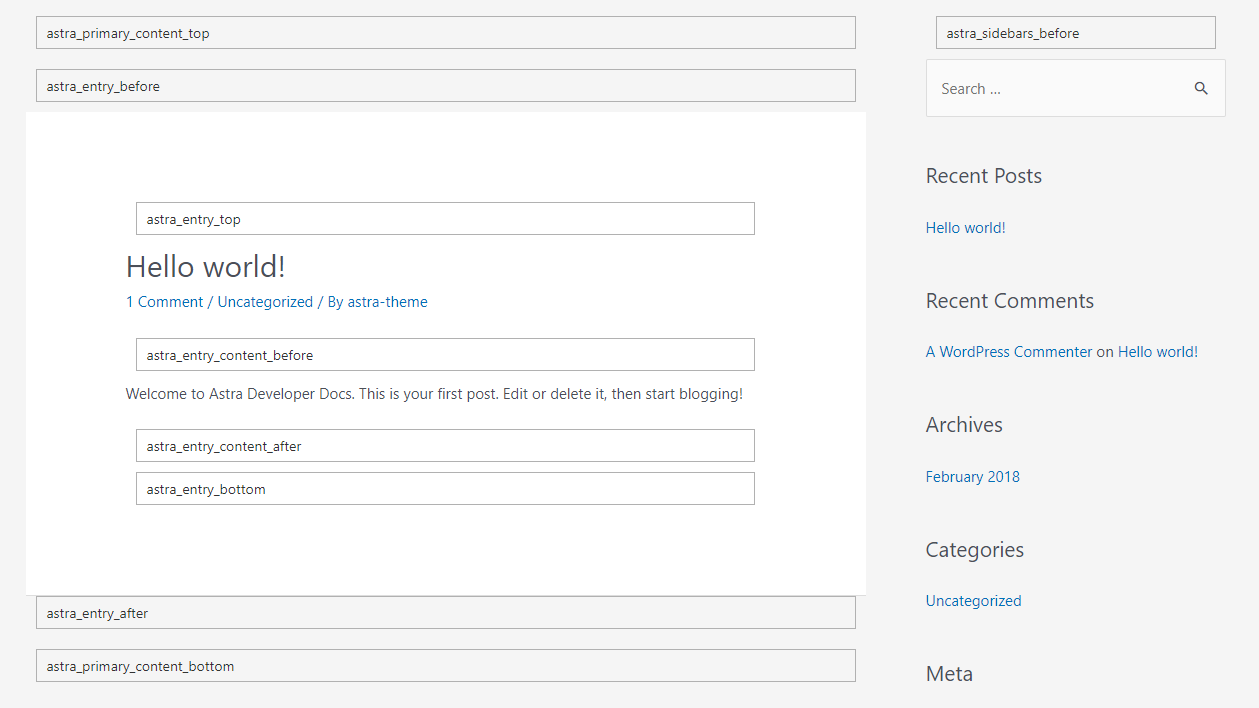Hooks are an essential feature of the WordPress platform
and they are closely related to code snippets. In WordPress, a hook is a point in the code where developers can add their own custom code snippets to modify or extend the functionality of WordPress core, themes, or plugins.

There are two types of hooks in WordPress: action hooks and filter hooks. Action hooks allow developers to execute custom code at specific points in the WordPress execution process. For example, you could add a custom action to execute when a post is published, or when a user logs in. Filter hooks, on the other hand, allow developers to modify existing data or output in WordPress. This could include modifying the content of a post or changing the appearance of a widget.
Hooks are used extensively in WordPress development to add new functionality or modify existing behavior. They offer a flexible and extensible way to customize WordPress websites without modifying core files or breaking the website. By using hooks, developers can create custom code snippets that interact with WordPress in a safe and efficient way.
To use hooks in WordPress, you will typically create a new code snippet that includes a hook function. The hook function will be executed by WordPress when the hook is triggered, and it can contain any code that you want to add or modify. You can add hooks to your WordPress website using various methods, including creating a custom plugin or adding the code to your theme’s functions.php file.
Hooks are important in WordPress development for several reasons. Here are some of the key benefits of using hooks:
- Maintainability: Hooks make it easier to maintain your WordPress website because they allow you to modify the behavior of themes or plugins without modifying their core files. This means that when updates are released for WordPress, themes, or plugins, you can apply them without having to worry about losing your customizations.
- Flexibility: Hooks offer a flexible way to modify or extend the functionality of WordPress. You can add or remove hooks, and you can customize them to fit your specific needs. This means that you can easily customize your website to meet your requirements, whether you need to add a new feature or modify an existing one.
- Compatibility: Hooks are designed to work with WordPress, themes, and plugins, which means that they are compatible with other customizations that you might have on your website. This can help you avoid conflicts with other code snippets or customizations, which can cause errors or unexpected behavior.
- Efficiency: Hooks are efficient because they only execute the code that is necessary for a specific task. This means that they help to reduce the overhead of your website, which can lead to faster page load times and better performance.
In summary, hooks are an essential part of WordPress development, and they offer a flexible and efficient way to modify or extend the functionality of WordPress websites. By using hooks, you can maintain the compatibility, flexibility, and performance of your website, while also making it easier to maintain and customize in the long term.
